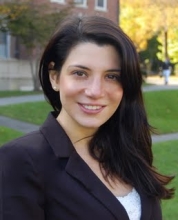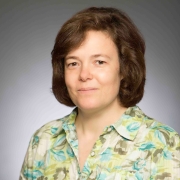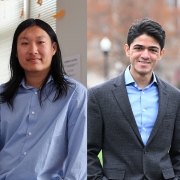Psychology's Coren Apicella Finds 'Endowment Effect’ Not Present in All Societies

The fields of psychology and behavioral economics have experimentally identified common biases that cause people to act against their own apparent interests. One of these biases—the mere fact of possessing something raises its value to its owner—is known as the “endowment effect.” A new interdisciplinary study from the University of Pennsylvania has delved into whether this bias is truly universal, and whether it might have been present in humanity’s evolutionary past.
The study, which will be published in the American Economic Review, was led by Coren Apicella, Assistant Professor of Psychology, and Eduardo Azevedo, an assistant professor in Wharton’s Department of Business Economics and Public Policy. They collaborated with Yale’s Nicholas Christakis and the University of California, San Diego’s James Fowler.
A classic endowment effect experiment involves giving participants one of two items, such as a chocolate bar and a mug, and then asking whether they would like to trade for the other. As the starting item is selected at random, there should be a 50 percent chance that participants initially receive the item they like best and thus a 50 percent chance that they will trade. Studies have shown, though, that people trade only about 10 percent of the time. Simply telling someone they own something makes them value it more, which goes against expectations about rational economic behavior.
One problem with these experiments is that they generally involve participants from Western, educated, industrialized, rich, and democratic societies. Apicella drew on her decade-long study of the Hadza people of Tanzania to provide a new perspective. The Hadza are one of the last hunter-gatherer societies on Earth, living in small, nomadic camps that communally share nearly all their possessions.
The area of North Tanzania where the Hadza live provided a natural way to further investigate the role of culture in transmitting this bias, as a large lake separates some, but not all, of the camps from a nearby village. People living in the camps on the near side of the lake have much more frequent interactions with tourists and commerce, often buying items from stores in the village, or selling bows and arrows to visitors.
The researchers conducted versions of the endowment effect experiment in several different camps, and compared the results. They found that the more isolated Hadza traded about 50 percent of the time—which matches expectations for economically rational behavior. People near the village traded about 25 percent of the time, which is much closer to the 10 percent seen in Western individuals. One explanation for the apparent lack of an endowment effect in the more isolated camps is that the bias is a learned behavior that comes with exposure to capitalistic societies. However, an alternative explanation could be that both groups experience the effect, but it is suppressed in the more communal groups by social pressures.
The research was supported by funding from the Science of Generosity Initiative of the University of Notre Dame and the John Templeton Foundation and by the National Institute on Aging.
Read the full story here.





